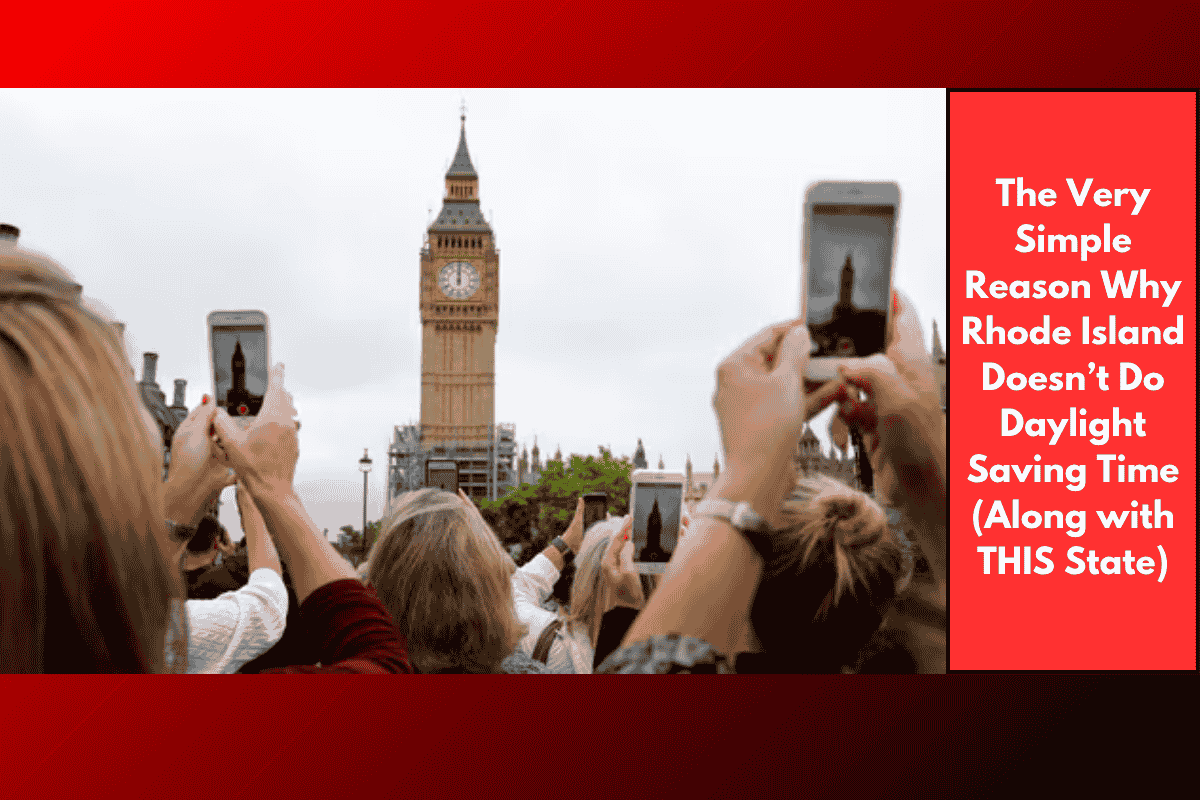Most of us are used to changing the clocks twice a year—once in spring and once in autumn—because of Daylight Saving Time (DST). But not all states in the U.S. follow this rule. You might be surprised to know that Rhode Island, along with another state, doesn’t take part in this clock-changing habit—or at least, they’re trying not to. The reason is very simple and has to do with sunlight, time zones, and what works best for local people.
Let’s take a closer look at why Rhode Island and another state don’t want to follow Daylight Saving Time.
What Is Daylight Saving Time?
Daylight Saving Time means turning the clock forward by one hour in spring to have more daylight in the evening. In autumn, the clock goes back one hour. The idea is to save energy and make better use of daylight.
But many people today find it confusing and unnecessary. Some even say it messes with sleep and daily routines.
Rhode Island’s Problem with Daylight Saving
Rhode Island is one of the smallest states in the U.S., located in the far east of the Eastern Time Zone. This means the sun rises and sets earlier compared to states farther west in the same time zone.
During the winter months, the sun in Rhode Island sets before 4:30 PM, which feels very early. This makes the evenings feel short and dark. So, many people in Rhode Island have asked: Why not switch to a time zone that suits us better?
The Proposal to Change Time Zones
Some Rhode Island lawmakers have suggested moving the state from the Eastern Time Zone to the Atlantic Time Zone. This would mean they wouldn’t need to follow Daylight Saving Time, and the sun would set one hour later all year round.
This small change would make winter evenings feel longer and brighter. People could enjoy more daylight after work or school, which many feel is better for health and mood.
However, this change would only work well if nearby states—like Massachusetts and Connecticut—also made the switch. Otherwise, it could cause confusion with business, travel, and schools.
Which Other State Feels the Same Way?
The other state often mentioned along with Rhode Island is Massachusetts. Just like Rhode Island, it’s also far east in the time zone, so it faces the same problem—early sunsets and long dark winters.
Massachusetts also considered moving to the Atlantic Time Zone and staying there permanently, skipping the DST change. But like Rhode Island, they said they’d only do it if nearby states agree too.
So, both states are waiting and watching, hoping for a group decision in the future.
Why Not Just Stick With DST or Quit It Altogether?
Many people are now asking if we even need Daylight Saving Time anymore. Some states like Arizona and Hawaii already don’t follow it. They stay on the same time all year, and it works fine for them.
Rhode Island and Massachusetts might follow the same idea—but they want to do it by switching to a new time zone that suits their sunlight patterns better.
Rhode Island and Massachusetts are rethinking Daylight Saving Time not to be difficult, but to make life easier for their people. Early sunsets in winter affect daily life, and switching to a better time zone like Atlantic Time might be a simple solution.
But any big change like this needs teamwork. Until then, the people of Rhode Island will keep adjusting their clocks and waiting for a brighter future—maybe quite literally!
SOURCES
[1] https://en.wikipedia.org/wiki/Time_in_Rhode_Island
[2] https://currenttimeutc.com/united_states/rhode_island/
[3] https://www.timeanddate.com/time/change/usa/rhode-island
[4] https://www.rd.com/article/states-dont-observe-daylight-saving-time/
[5] https://www.cbsnews.com/news/states-without-daylight-saving-time/














